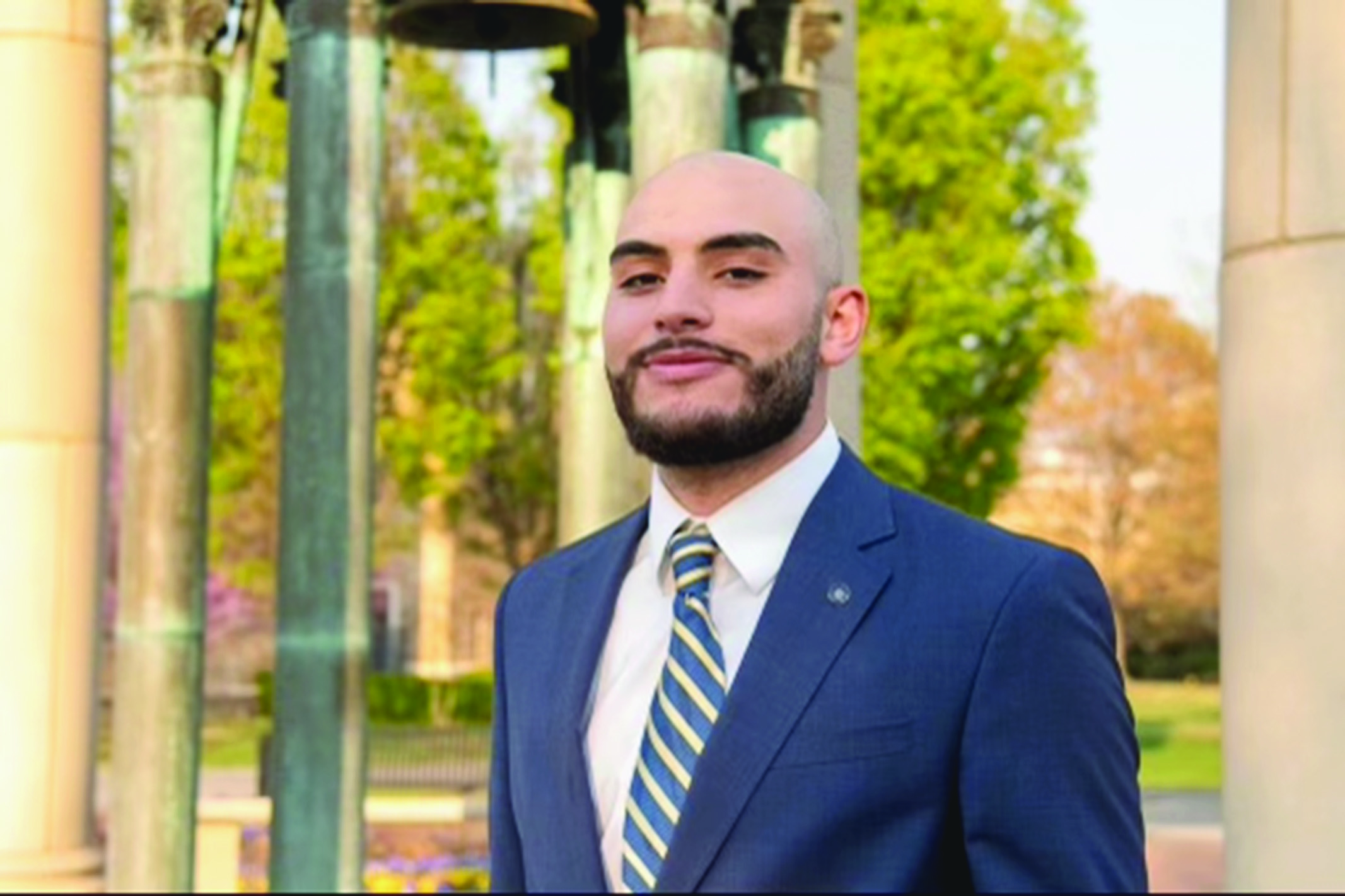
Kareem Ihmeidan pledges to make a difference for the lives of North Tulsans
By Ashley Jones
For The Oklahoma Eagle
When Kareem Ihmeidan first moved to Tulsa from his hometown of Fort Smith, Arkansas, friends told him to keep his distance from the Northside of town.
Three years later and an immersion in Tulsa’s legacy, the newly elected student association president at the University of Tulsa has embraced North Tulsa and established an organization to help the Northside community combat some of its longstanding problems.
As Ihmeidan approaches his last year as an undergrad at the University of Tulsa, his next endeavor is the Force for Good Initiative (FFG). Organized in collaboration with fellow TU students Chris Paul and Josh Stewart, FFG is a student coalition centered on civic engagement. Its goal is to combat negative issues within North Tulsa and serve as a catalyst in bringing positive change.
The transformation of Ihmeidan’s perspective on North Tulsa has been striking.
“Throughout my time as a student here at TU, North Tulsa was always seen as an area to avoid,” he said.
The TU campus doesn’t sit that far away from North Tulsa. Through hanging out in diverse crowds on campus, Ihmeidan became aware of the area’s disparities.
“I wanted to figure out why. I started to get to know more people from the North Tulsa area… to go visit and started to spend more time in that area,” he added. “And really all I saw was, it wasn’t that we needed to avoid this area, we needed to help bring it back. We needed to revitalize that area.”
Connecting TU with North Tulsa
Ihmeidan, 22, and of Middle Eastern descent, was sworn in as student association president at the end of March.
His role as president is to enhance the experience of the 4,600 strong student body, and to establish the University of Tulsa as a leading force for change in the community. He has already developed programs, such as the Reshape Tulsa Initiative, which grants students seats on the boards of authorities in commissions of the city of Tulsa.
Ihmeidan has pinpointed the first issues in North Tulsa he thinks FFG should address. The initial focus will be “specifically on the food desert Issue, housing conditions, and developing school programs with high schools and middle schools within that area between them and the university and student associations,” he explained.
In the run-up to starting FFG, Ihmeidan and his colleagues studied North Tulsa. He used qualitative research and discourse analysis, which is research based on community outreach discussion. As an initial step, the students are developing partnerships with North Tulsa community leaders.
“Now, we have been meeting with stakeholders in the community,” Ihmeidan said.
They are “talking and discussing the initiative,” he added. “The next step is to get this thing moving. I think there are a lot of issues we will have to pursue. It will focus on working with nonprofits and working with any organization and collaborating with them and bringing about changing those certain issues. It’s slowly getting out of the planning stage.”
‘It is only human’
FFG has started shooting a film centering on interviews from people in North Tulsa who favor change and can make change happen. Outside of stakeholders, they have talked to festival patrons and natives to gain an outsider and insider perspective. The film is designed to garner support for the initiative.
“I think there is a common link between everything, and the fact that we are human beings,” Ihmeidan said.
“No matter what position you’re in, no matter who you are, if you see another human being struggling, it is only human to want to aid and assist that person struggling,” he added. “Me being a person of color in America, I think I also made that connection in terms of how minorities, and people of color are perceived systematically.”
One outcome Ihmeidan is hoping for is a platform for the residents of North Tulsa and the entire Tulsa population to voice their concerns. Following this year’s focus on the Northside, they plan to expand FFG’s mission.
The key is working together.
“Unity is a key foundation for any sort of movement, and any sort of vision of change,” Ihmeidan said. “In order for us to truly overcome decades of systematic problems. Unity is going to be a crucial ingredient to that formula.”










